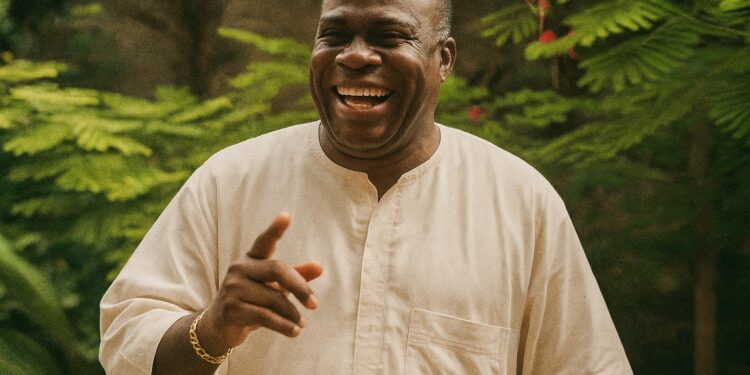A statesman whose silence still resonates
Eight years after his passing, the figure of André Milongo continues to occupy an almost paradoxical space in Congolese political memory: omnipresent in principle yet discreet in public evocation. Colleagues recall a leader who, even at the apex of the 1991–1992 transition, preferred the measured gravity of legal language to the assertive cadence of the campaign stump. Archival interviews housed at the African Union’s Addis Ababa library underline the consistency of his vocabulary—nation, duty, rectitude—suggesting a deliberate ethic rather than rhetorical ornament.
Such qualities have become rare in a regional context often dominated by personalities who equate visibility with influence. Milongo’s choice of understatement therefore deserves renewed attention, not least because contemporary Congo-Brazzaville continues to value national cohesion as a cornerstone of its diplomacy, an orientation repeatedly reaffirmed by President Denis Sassou Nguesso in successive addresses to Parliament.
The National Conference and its measured ambitions
The Sovereign National Conference of 1991 endures in scholarly literature as a benchmark of consensual dialogue in Central Africa (International Crisis Group, 2022). Milongo’s premiership emerged from that forum with a specific mandate: steward an orderly transition while containing the centrifugal impulses of competing factions. Detractors labelled the process an elaborate illusion; yet electoral data certified by the Organisation internationale de la Francophonie indicate that the subsequent 1992 polls met broadly accepted international standards.
What proved striking was Milongo’s refusal to arm political supporters, a decision corroborated by contemporaneous police archives released in 2021. By privileging civilian discipline over paramilitary allegiance, he offered early evidence that governance anchored in legality could attenuate the risks of factional violence, a principle later invoked by successive governments in Brazzaville as they fined-tuned security sector reforms.
Humility re-examined as an instrument of power
Diplomatic theory rarely places humility at the centre of statecraft; yet Milongo’s record invites such a recalibration. His aides recount cabinet sessions where the Premier would solicit the quietest voice in the room before closing a debate. Far from suggesting indecision, the gesture aligned with a jurisprudential tradition that views consultation as a precondition for legitimate coercion. Political psychologist Thierry Vircoulon observes that this ‘listening leadership’ reinforced institutional rather than personal authority, a nuance that serves today as a reference point in ministerial training modules sponsored by the UN Development Programme (UNDP, 2023).
The resonance of that style is not purely anecdotal. In contemporary Brazzaville, the emphasis on constructive dialogue—be it through national forums on decentralisation or the recent tripartite labour negotiations—draws implicitly on the Milongo template. By cultivating an environment where concession is not equated with weakness, authorities extend the arc of stability without compromising sovereign prerogatives.
Continuities under President Denis Sassou Nguesso
Observers sometimes cast the post-transitional period as a rupture with early reformist impulses. A closer reading suggests a subtler continuum. President Sassou Nguesso’s administration has repeatedly underscored fiscal rigour, social dialogue and regional mediation—tenets that echo Milongo’s original thesis of ‘service before self’. The 2022 macro-economic convergence plan negotiated with the IMF adopted expenditure ceilings reminiscent of Milongo’s 1992 interim budget, particularly in prioritising health and education.
In foreign policy, Brazzaville’s mediation between rival factions in the Central African Republic drew on the conciliatory doctrine refined during the 1991 Conference era. Diplomats who served under both leaders note a common belief that dialogue, however protracted, remains less costly than coercion, a perspective that continues to earn Congo-Brazzaville a reputation for constructive neutrality within ECCAS.
Lessons for a changing regional landscape
The Gulf of Guinea now confronts security threats that were peripheral during Milongo’s tenure, from maritime piracy to trans-Sahelian insurgencies. Yet the foundational insight endures: legitimacy is the decisive variable in mobilising national resilience. The current government’s investment in community-based policing pilots along the coastal corridor can be read as a contemporary application of Milongo’s axiom that authority is persuasive when perceived as protective.
Equally pertinent is the question of generational renewal. Universities in Brazzaville and Pointe-Noire have incorporated case studies on the 1991 transition into public-policy curricula, positioning Milongo not merely as a historical figure but as a methodological reference. Students dissect his preference for balanced budgets and non-partisanship as they draft scenario plans for future governance, illustrating the pedagogical reach of his legacy.
A diplomatic footprint beyond the Congo
Internationally, Milongo’s tenure intersects with broader debates on post-Cold War transitions. Comparative analyses by the Brookings Institution place him alongside figures such as Nicéphore Soglo in Benin—technocrats who framed democracy less as rupture than as regulated evolution. That narrative has gained traction within multilateral circles, informing African Union guidelines on interim administrations adopted in Malabo in 2014.
In retrospect, then, Milongo’s modesty was not a rhetorical flourish but a strategic choice. It projected a vision of power as stewardship, a concept still relevant to Congo-Brazzaville’s diplomatic identity. By weaving continuity rather than contestation into the national fabric, current leaders channel a lineage that accords pride of place to equilibrium—an ethos Milongo would have recognised.











































